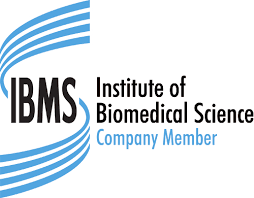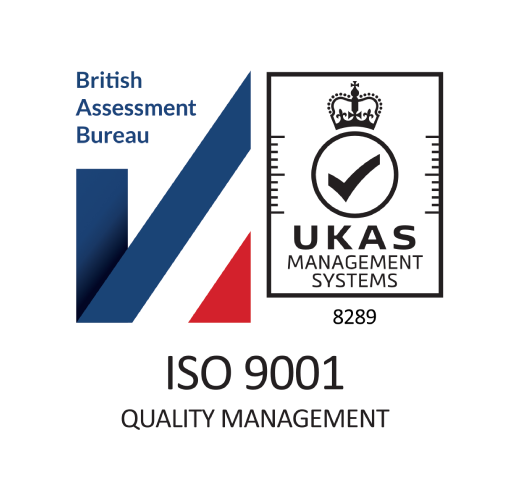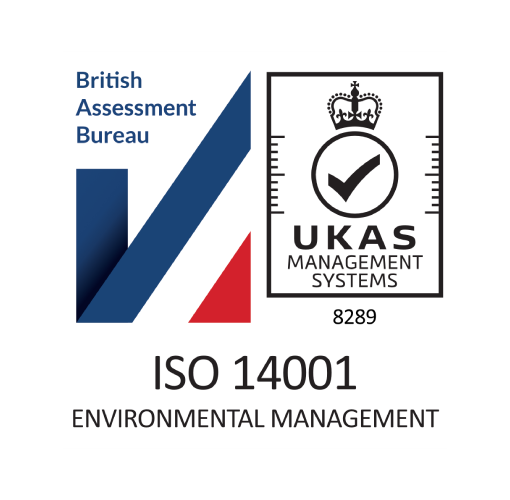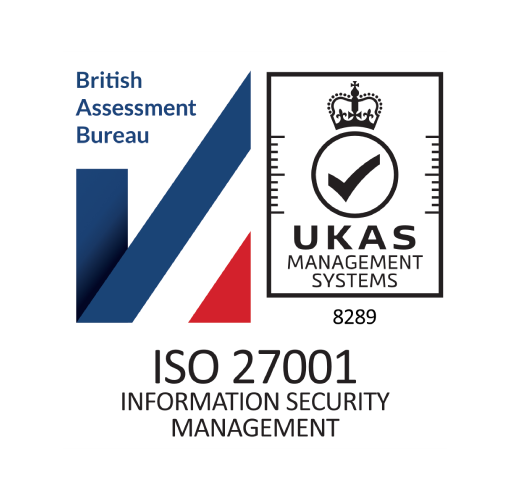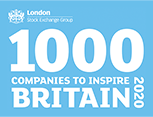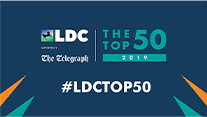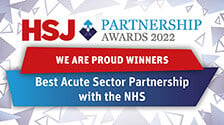Procurement must become centre stage in the NHS
Our exciting new partnership with LG Energy Group (LGE)
Please get in touch, we're ready to help
28 May 2020
Author | Admin
Procurement must become centre stage in the NHS
The English lexicon has changed markedly in light of the worldwide coronavirus pandemic with language like social distancing, lockdown, viral load and furloughing all now in common parlance. Perhaps what is surprising is that words like ‘procurement’ and ‘supply chain’ have been heard equally as frequently. The media headlines around the whole issue of personal protective equipment (PPE) for frontline clinical staff have been beamed into homes up and down the country on a nightly basis.
Undeniably there have been issues. Reports of medics finding it harder to access any sort of PPE, manufacturers talking about unanswered emails for equipment orders, hospitals running out of items, planes sent to Turkey to collect emergency supplies, and a failure of demand management, all adds up to a steady stream of headlines that haven’t painted a pretty picture of the profession at times.
Clearly there are mitigating reasons for all this and answers as to why things occurred are never simple. Frankly, we’re living in exceptional and unprecedented times. Most of us could not have imagined a couple of months ago how we would be living today. Furthermore, the NHS is a complicated, fragmented, multi-faceted organisation – a diverse entity with numerous needs and requirements, hampered by a history of financial pressures. Even more diverse and complicated is the social care sector where we have seen equally harrowing headlines.
So, and with the benefit of hindsight, we should take the opportunity to learn from what has happened and use this to see what can be learnt to move us forward positively. How we can use the current experience to transition and run the NHS for the better and prepare for when Covid-20, 21 or 22 – or some other virulent virus – comes along?
Improving procurement processes
First, this is a great opportunity for procurement to demonstrate the strategic role it has to play in NHS activities. No longer should it be seen as simply as an enabler to get medical supplies ordered, ensure that that the lowest price is paid and that invoices are settled. Procurement has a much more important role to play assessing, for example, what are we buying and why, where we get items from, understanding the power regimes in the marketplace, are alternatives reviewed thoroughly, can IT be used to boost order efficiency and so on. And it should even include getting into the granular detail of what each NHS department or consultant spends on a per patient basis so that productivity improvements can be identified and targeted.
As part of this, greater strategic sourcing initiatives are required to examine the relevant attributes from sourcing from multiple providers, how inventory is managed over time to ensure stock is rotated properly and is within ‘shelf life’. Further, we should review our reliance on overseas suppliers or whether local sourcing and the development of UK manufacturing should be a bigger part of the product buying mix.
Shining a light on procurement is not new. Improving procurement processes was the focus of Lord Carter of Coles’ report on operational productivity and performance published back in 2016. The NHS has seen many changes as a consequence, but perhaps in certain areas we haven’t gone far enough to challenge existing practices and check their robustness?
Second, supply chain resilience will become the new topic for discussion. Good practice regularly involves a thorough audit of chains so that there’s a detailed and comprehensive understanding about the source of equipment and consumables and therefore a clearer appreciation about the NHS’ ability to react, cope and maintain services in the event of a health crisis. In-depth risk analysis and due diligence of suppliers has to be carried out to know precisely where products are made, are they fit for purpose, whether they meet legal, medical and ethical standards, the different logistics steps in the delivery chain to get them from site of manufacture to UK hospitals, the risks associated with this, suppliers’ financial stability and capability to truly deliver contractually and so on. It is all about understanding the robustness of the supply chain and how you de-risk and mitigate any issues found so as to avoid scrabbling about to find items in an emergency – or even day-to-day – when demand is at a premium.
Opportunity for learning
Third, the pre-occupation with price needs to be balanced with ‘value’. For example, what is the impact of not being able to buy PPE now? The answer is that we are probably spending between five and 10 times more getting it from elsewhere in the world and air freighting it home. And then, of course, there is the impact on the health, confidence and happiness of clinical staff – let alone the patients themselves – when it comes to hands-on treatment. A greater awareness, sensitivity and acknowledgment of this must be on the agenda.
Fourth, as we come out of Covid, NHS managers will need to review the whole medical ecosystem to look at how procurement and the organisation of it can be improved for the country. More than likely shared services will play a bigger role with the private sector engaged to assist based on their subject expertise. Inherent in this is that there should better pooling of resources and co-ordination between the Department of Health, NHS Supply Chain and third-party organisations probably via a shared services collaborative platform. This should be bolstered with ‘pushing and pulling’ of information across the whole NHS system so that co-ordination of procurement activities is enhanced.
Whilst the recriminations around what was and was not done and the timeliness of these efforts will be with us for a while, as a profession procurement has an opportunity to take some positive lessons from what has been an unprecedented few months for the whole world. It would be remiss of us if we didn’t take this opportunity to adapt and learn from the coronavirus experience and change our approach to procurement in the NHS. We need to adopt best practices regardless of which industry we take it from, create the right industry partnerships and collaborations and hire the right people with the expertise and know-how to drive things forward effectively. Through this we can achieve the performance, efficiency and value for money that the NHS deserves.
Related articles
Introducing Energy Services
08 June 2022
Author | Admin
Genmed is pleased to announce our partnership with LG Energy Group (LGE).
South West London Elective Orthopaedic Centre and Genmed are HSJ Partnership Award Winners
29 March 2022
Author | Admin
On 24 March 2022, Genmed and South West London Elective Orthopaedic Centre (SWLEOC) were chosen as...
Genmed Procurement Services
16 March 2022
Author | Admin
Genmed can manage rapid and efficient procurement projects for you. We can add capacity and...
IFRS 16 – Does this put a Managed Service Contract (MSC) on balance sheet?
22 February 2022
Author | Admin
Done properly the MSC remains off-balance sheet. There are exceptions (see below) but, for the most...
MES versus MSC
22 February 2022
Author | Admin
Managed Equipment Services (MES) and Managed Service Contract (MSC) are different. Very different....
Genmed Finalists in HSJ Partnership Awards 2022
24 January 2022
Author | Admin
Genmed is delighted to announce that their partnership with South West London Elective Orthopaedic...
New surgery capacity for South West London Elective Orthopaedic Centre (SWLEOC)
02 August 2021
Author | Admin
A new theatre at the South West London Elective Orthopaedic Centre (SWLEOC) opened in July 2021...
Hepatitis C testing services to the wider NHS
12 August 2019
Author | Admin
Founded in 2012, the EPA has become a centre of excellence for pathology – particularly virology –...
New state-of-the-art endoscopy centre
10 December 2018
Author | Admin
The Gastroenterology department at the Norfolk and Norwich University Hospital (NNUH) has moved...

